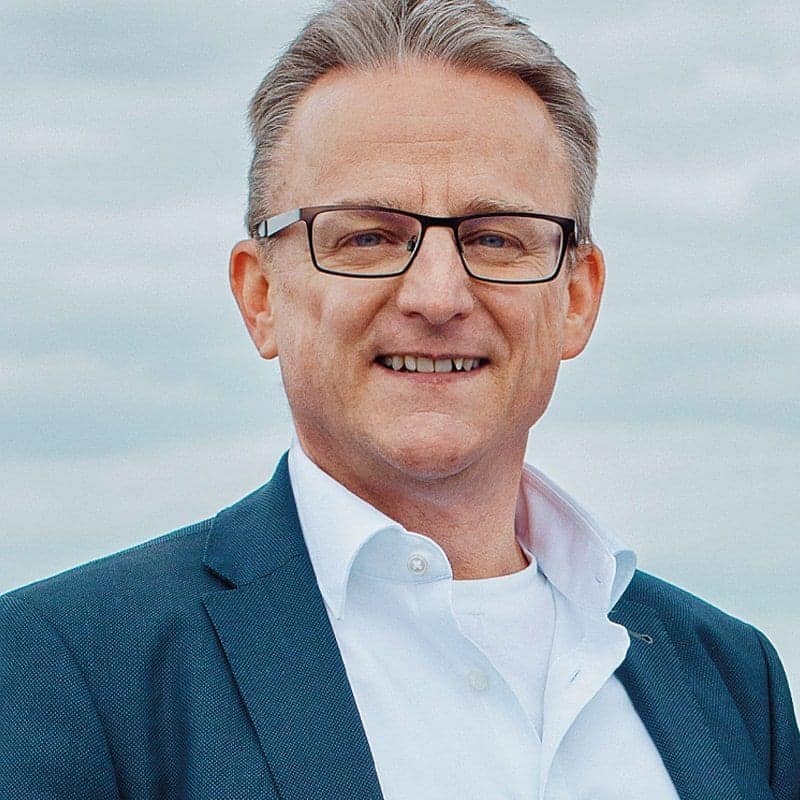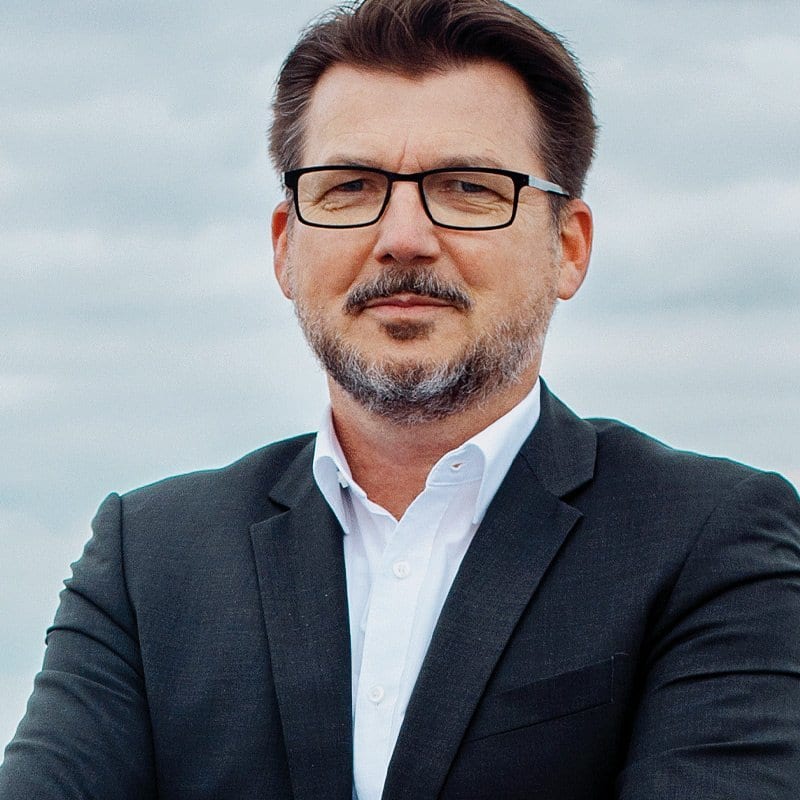A perfect roadmap


ERP is always a holistic approach. Anyone who reduces the operation of SAP Business Suite 7 with AnyDB or S/4 with Hana to a technical level and only perceives the discourse between on-premise and cloud computing has not understood the complexity of current and future ERP systems in the context of digital transformation. Transformation is the design of business, organizational and technical processes.
Only a holistic approach to the organizational structure and processes will meet the expectations set. With S/4 and Hana, this transformation can succeed if the right employees, experts and partners are on board. SAP partner Devoteam has set itself the goal of thinking outside the box and finding sustainable answers to questions of digital transformation for existing SAP customers with holistic concepts. Editor-in-Chief Peter Färbinger spoke with Andreas Klinger, COO Devoteam Germany, and Tobias Hummel, Managing Director Devoteam GmbH and Director SAP Devoteam S Team.
In years past, the question of the best possible ERP always oscillated between best of breed and a black box like R/3. With NetWeaver, SAP Data Hub, OData and other tools, the edges of a central ERP have softened. "We can clearly observe that pure on-prem operation is no longer an option for many companies", explains Andreas Klinger.
"Of course, the solutions are always as different as the customers, but the trend is clearly moving toward hybrid scenarios and systems and architectures located entirely in the cloud. One consequence of this trend, however, is that people are increasingly moving away from all-encompassing solutions and more towards the combination of special products tailored to specific needs. It comes in handy, of course, that cloud platforms enable highly complex functionality out of the socket."

Earlier this year, SAP CEO Christian Klein presented Rise, the next transformation stage after Embrace and Conversion: "Companies that can adapt their business processes quickly are among the winners. SAP can help them succeed here. That's what Rise with SAP is all about: helping customers reimagine business processes in the cloud to stay ahead of the competition in their industry."
What does Devoteam think of SAP's direction with Embrace, Conversion and Rise? "Especially with regard to companies that rely entirely on SAP solutions, Rise, for example, is a very comprehensive solution that addresses and fulfills central aspects and wishes of many SAP customers", Tobias Hummel describes the current situation. "All in all, however, it should not be forgotten that non-SAP customers also have a need for comprehensive solutions and want to use them."Rise and conversion can be suitable answers here - depending on the company and the customer.

Managing Director Devoteam and Director SAP Devoteam S Team
"In our day-to-day contact with customers, we experience how difficult it is to accurately assess the solutions required and the technology already implemented. This is why the first step for existing SAP customers, too, must be a precise assessment of their own IT architecture - including cybersecurity measures, databases and applications, of course."Tobias Hummel can report from many successful customer projects. As soon as the current state is clear, goals can be developed that set out the way forward and the long-term digitization strategy.
Of course, the question of priorities comes first: In Devoteam's opinion, what should existing SAP customers place particular emphasis on in the digital transformation - the business, organizational, technical or licensing aspects?
Tobias Hummel: "A stable technical basis is central to a functioning and future-proof digital transformation strategy. At the same time, it also represents the foundation for business success and a functioning organizational structure and other framework conditions. Accordingly, companies should focus primarily on the technical dimension of their transformation strategy and plan with this as a basis. In addition, licensing aspects are increasingly moving into the background. The reason for this is the steadily increasing number of licenses that are being converted to the pay-what-you-use model. Licensing law concerns should therefore be less and less relevant for the far-reaching decisions that have to be made today. Much more important here are the aspects in the context of cybersecurity and the increasing focus on an agile infrastructure."(On the subject of cybersecurity, see also page 46 f. in this cover story).
From Devoteam's perspective: Can digital transformation be managed with SAP offerings or does the existing SAP customer need complementary tools and infrastructure? "If we look at the full range of technology options, there are a variety of other products and solutions to look out for besides SAP", Andreas Klinger defines the bandwidth of the current IT offering and he emphasizes in the E-3 interview that it is also true here that you should never lose sight of the big picture - so complementary tools and cooperations are definitely a necessity. After all, the buzzword digital transformation doesn't just cover one aspect of the corporate structure. Companies would do well to develop holistic concepts in order to remain capable of acting in the future.

COO Devoteam Germany
The discourse in the SAP community in recent months has been strongly characterized by the divergence between on-prem and cloud computing: Is the decision on on-prem, cloud or hybrid a strategic one or an operational one that automatically follows from the parameters at hand? "This is clearly a strategic decision", Andreas Klinger answers and he explains: "You have to consider, where do I want to be in five years?"
With AnyDB and ERP/ECC 6.0, Business Suite 7, it theoretically goes until 2030. The existing SAP customer could change ERP or switch to S/4 Hana. How does Devoteam see the future? Tobias Hummel comments: "IT must provide the company with the tools to master day-to-day challenges and problems, and optimally lead to an increase in productivity while reducing costs."
Hyperscalers are much more flexible platforms than any on-prem solution could be. Andreas Klinger says that the possibilities they already offer are breathtaking for traditional IT architects. However, the development does not end there.
Every year, hundreds of new solutions and useful products are added from the socket to meet the needs of a wide range of customers. "Hyperscalers can therefore be described as real drivers of innovation, which the rest of the market must follow - and which companies should keep in mind as useful partners!", defines Devoteam manager Andreas Klinger.
Given the multiple challenges for an existing SAP customer, the question is whether it could be that existing customers are trying to keep an AnyDB Suite 7 system alive for as long as possible and then migrate to its S/4 successor. "This is a perfectly conceivable situation, yes", says Tobias Hummel.
"If, for example, the business model is no longer to be built entirely in the SAP environment and a more differentiated path is chosen, it may be appropriate to maintain the status quo in order to pursue long-term strategies in this way." This also offers the possibility of scaling back the special solutions built up in the past or integrating special solutions into the company's own architecture.
There are many different areas of application for this: For example, Ariba is used instead of mapping purchasing via ERP. A BW on Hana instead of integrated reporting or ServiceNow instead of CS and SM in ERP are further examples that Tobias Hummel and Andreas Klinger mention in the E-3 conversation.
From Devoteam's experience, where does the existing SAP customer find the best Hana system, on-prem or in the cloud? "What is an optimal solution for one customer can be a huge downgrade for another customer", Andreas Klinge tries to differentiate. "Our philosophy is that solutions must always be tailor-made. Accordingly, we always base our planning and strategic consulting for our customers precisely on the results of the joint assessment. Of course, the questions of the desired costs, the required flexibility and the duration until complete deployment must always be clarified. Only then do we know which solution is optimal for the respective case."
Unfortunately, the SAP cloud offering is not yet complete, which also shifts a lot of responsibility to the partners. In any case, isn't the cloud a big risk for the existing SAP customer as long as there is no sustainable exit strategy? "This risk exists just as much when looking at solutions based on outsourcing or on-prem", explains Tobias Hummel.
"Here, too, one should always look at the respective individual case, since a generally valid statement can simply hardly be made. However, possible standardization processes may even reduce the risk within an assessment.", explains Tobias Hummel.
"In general, we recommend hybrid solution approaches", thus Tobias Hummel means supplementing. "In our experience, these are very future-proof and offer the necessary flexibility to map a variety of different needs." But here again the question arises: What does the customer need? Tobias Hummel: "It is difficult to saw a board with a hammer, and very few nails are driven into the wall with saws. Tool and solution should always fit individually to the respective problem."
For an ERP master plan: Where is there a lack of SAP answers? Where is there sufficient information? And how does Devoteam help existing SAP customers with their personal ERP master plan? "We provide our customers with specific SAP IT strategy consulting as well as information on cloud platforms and options for a wide range of integration scenarios.", promises Andreas Klinger. "To offer exactly these advantages and insights, we use our broad partner network. As a consequence, our customers have the possibility to access innovative and stable solution approaches."


[adrotate banner="281″]





